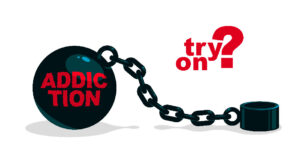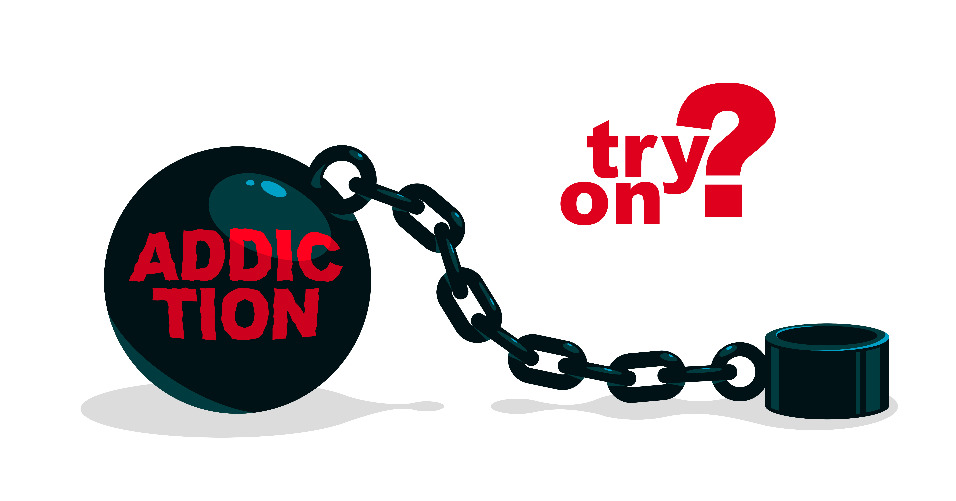
Adam and Eve could have used a good NA (Narcotic Anonymous) meeting after they ate of the fruit of the tree in the middle of the Garden. They used “what’s happened to me” as an excuse for their poor choice and the shame, guilt and regret that followed. They floundered in self-pity and let their self-centeredness lead the way into even more poor decisions. At a meeting, they would have learned they were living in the triangle of self-obsession, making excuses for their questionable behavior.
Let’s look at Genesis chapter 3 to see how this works out. The serpent tells Eve she won’t surely die if she eats of the fruit of the tree in the midst of the garden. She saw the tree was good for food, a delight to the eyes, and was desired to make you wise. So, she took the fruit and gave some to Adam, who ate it with her. They got what they had craved, but along with their eyes being opened to their poor decision, there were negative consequences for their actions.
They realized they were naked, and that they had impaired their relationship with God. They now saw their guilt before God (they were naked) and were ashamed. So then they sewed fig leaves together and made themselves loincloths (Genesis 3:4-7).
When God called to Adam and said “Where are you?”, He was calling on Adam to consider what he did wrong. A commentator observed that there is no possibility for reconciliation if the guilty are unwilling to confess their deeds. When Adam said he was afraid because he was naked, he was afraid to appear before God in his nakedness—he was ashamed of his disobedience. “Adam admits his sense of shame, which was motivated by his guilt.”
There were also problems from how they responded to God’s questions. When God asked if he ate of the tree which he was commanded not to eat from, Adam failed to take responsibility for his actions. He actually blamed both Eve and God, saying the woman that God gave him gave him the fruit and he ate. It’s like he’s saying, “I only took what she gave me!” Adam implied God was ultimately responsible for the success of the serpent and Adam’s eating the fruit. Here we see how by shifting the blame, Adam tried to evade accountability for his actions—and in the process alienated his relationship with Eve. In effect, Adam said, “The helper you gave me God, she’s responsible!”
When God asked Eve to explain what she had done, she also played the blame game, saying the serpent deceived her and she ate. Adam and Eve were trying to excuse their sinful behavior, but they were really deceiving themselves. And because of their failure to take responsibility for their actions, they experienced more shame and guilt, and were led straight into the triangle of self-obsession.
NA says self-centeredness is the core of their disease, their addiction. And as we saw above, it is the heart of all sin from the beginning. In “The Triangle of Self-Obsession,” it says:
Resentment, anger, and fear make up the triangle of self-obsession. All of our defects of character are forms of these three reactions. Self-obsession is at the heart of our insanity. Resentment is the way most of us react to our past. It is the reliving of past experiences, again and again in our minds. Anger is the way most of us deal with the present. It is our reaction to and denial of reality. Fear is what we feel when we think about the future. It is our response to the unknown; a fantasy in reverse. All three of these things are expressions of our self-obsession. They are the way we react when people, places, and things (past, present, and future) do not live up to our demands.
If Adam and Eve had been able to attend that NA meeting, they would have been introduced to a new set of tools— the Twelve Steps. However, God had a better plan than an NA meeting or the Twelve Steps for Adam and Eve. In His judgment against the serpent, God said there would be hostility between the serpent and the woman, between her offspring and the serpent’s offspring (Genesis 3:15). Christian tradition refers to God’s statement in Genesis 3:15 at the protevangelium, the first gospel. The New Testament presents Jesus as the Christ—the long-awaited Messiah and Savior predicted by the prophets and alluded to in God’s judgment against the serpent in Genesis 3:15.
However, the NA fellowship does not go there in “The Triangle of Self-Obsession.” Instead of Jesus Christ, the recovering individual is supposed to seek the help of a “Power greater than themselves.” Many Christians will have an automatic rejection of whatever NA says about recovery if that greater Power is not explicitly called Jesus Christ. But remember, “The Triangle of Self-Obsession” is not about salvation from sin, but recovery from addiction.
Jimmy K., considered to be the founder of NA, made a profound contribution to the fellowship when he successfully argued the NA First Step should say members were powerless over “our addiction” instead of alternatives like drugs, alcohol and drugs, or narcotic drugs. Instead of centering their institutional identity on a single drug, as AA did, NA focused its attention on the shared process of addiction. So, you won’t hear about the Fall, or Adam and Eve, or the protevangelium in “The Triangle of Self-Obsession.” But you will hear about faith, love and acceptance from the perspective of common grace:
Common grace is understood to be the unmerited favor of God towards all men whereby (1) he restrains sin so that order is maintained, and culture and civil righteousness are promoted; and (2) he gives them rain and fruitful seasons, food and gladness, and other blessings in the measure that seems to him to be good.
When you read any NA or AA literature, think of it as a common grace description of how God restrains drug addiction or alcoholism; how it is God’s bounty poured out on all men and women in order for them to recover, regardless of their faith in Him. With this in mind, we’ll continue to reflect on “The Triangle of Self-Obsession,” in part 2 and consider how the addict is given “a new way of life and a new set of tools.”
For more on Jimmy K. and NA, see “The Birth and Near-Death of Narcotics Anonymous” and Growing Pains with Narcotics Anonymous.”





